Culinary Guide to Labneh: Everything to Know in 2026

If you’ve dined in a Middle Eastern or Mediterranean restaurant, you’ve probably seen the word labneh but may not have known what it was. You just ordered that grilled lamb or kofta kebab and trusted that the labneh it was served with would be good. Then you got your first taste and you fell in love. Labneh is creamy like soft cheese but tart and tangy like yogurt. It works with just about anything from warm pita bread and roasted meats to fruit plates and desserts.
What is labneh? What can you use it for? Labneh is not exactly yogurt, and it’s not exactly cheese. Labneh lives somewhere in the glorious middle, which makes it an extremely versatile food. This cow’s milk creation may not be available in your standard grocery aisle, but it’s worth searching out. Labneh is easy to make if you can’t find it in the store, and it’s a much healthier option than your typical high-calorie cream cheese.
Jump to Section
- What Is Labneh?
- What Does Labneh Go With?
- Is Labneh Healthy?
- Labneh Substitutes
- Where to Buy Labneh
- How to Make Labneh
- Storing Labneh
What Is Labneh?
What is labneh? Labneh, pronounced leb-nay, is the next-level cheese condiment to reach for if you love Middle Eastern or Mediterranean cuisine. Most of us reach for cream cheese or possibly goat cheese when we need that creamy fix. But if you have decided to embrace a healthier, more worldly diet, labneh is about to become your best friend.
Labneh comes from the Middle East. It is yogurt that has been strained of its liquidy whey, which results in a product somewhere between thick yogurt and cheese. You’ll find it described as similar to cream cheese, but most people think of something more solid when they envision cheese. Labneh is the consistency of a loose and light cream cheese but with a tanginess that comes from its yogurt base. In other words, it’s light yet tart, and it’s delicious.
Labneh is traditionally made from cow’s milk, but it is possible to make it with non-dairy alternatives too.
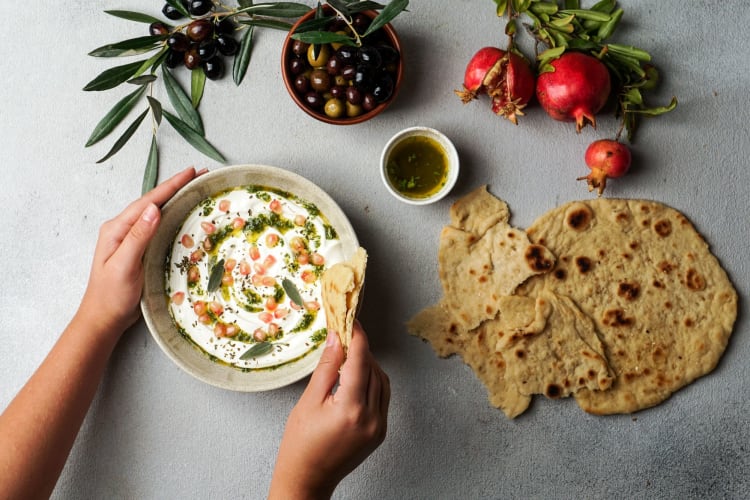
What Does Labneh Go With?
Labneh is extremely versatile. It can be eaten alone, topped with fruit, honey or nuts, used as a dip, stirred into soups and is used in many baking applications. Does your recipe call for sour cream, yogurt or cream cheese? Labneh cheese substitutes well for any of these ingredients with the benefit of lightening the calories and adding a brighter flavor. You can even use it in smoothies.
In Middle Eastern culture, you’ll find labneh at nearly every meal. It is commonly served with roasted or grilled meats, and it’s almost always served if there is warm pita bread on the table. Unlike yogurt, labneh doesn’t separate when heated, so it makes a great addition to soups and stews for a creamier result.
Labneh is also a staple of the Mediterranean diet. Whipped labneh topped with olives, roasted tomatoes or eggplant is a common and addictive appetizer. It’s also used as a sandwich condiment (with cucumber, radish, parsley and mint). Elevate your avocado toast to the next level with some labneh and a drizzle of honey.
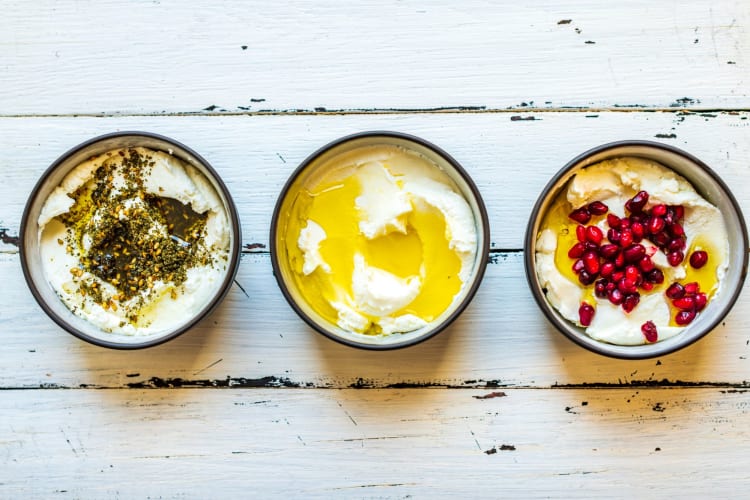
Is Labneh Healthy?
Good news! Tons of health benefits come from adding labneh to your diet. As with other similar dairy products, such as Greek yogurt, you might not be surprised to learn that labneh is a great source of protein. Labneh also delivers calcium, vitamin A and is rich in probiotics.
Labneh cheese contains some fat and has a high protein-to-calorie ratio. It's worth noting that labneh does have a relatively high sodium content, so if you're following a low-sodium diet, you may need to limit your consumption of labneh or enjoy it in moderation.
Interestingly, labneh contains much less lactose than other dairy products, so it can be a great alternative for those who are lactose intolerant.
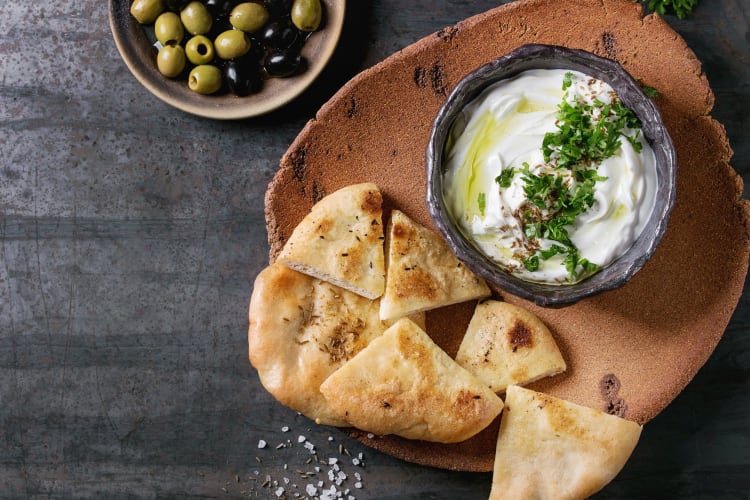
Labneh Substitutes
Based on what we’ve learned so far about labneh, you can probably guess what the best substitutes are if your recipe calls for it but you don’t have any. Cream cheese is an easy substitute. Greek yogurt is the next best option. If you have both, try combining a little of each as your labneh substitute.
Sour cream is also an acceptable option if you need to substitute for labneh if you are looking for that tart flavor, and since labneh makes a decent substitute for goat cheese, as you might expect, it works just as well the other way around.
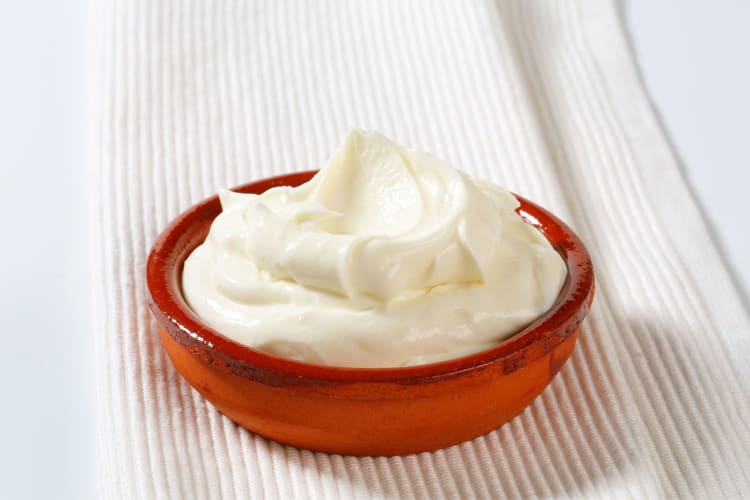
Where to Buy Labneh
Labneh is readily available in many grocery stores. You may find it spelled in a variety of ways, including lebneh, lebnah, labaneh, labane, labne or labni, or labeled as “Middle Eastern yogurt.” International markets and specialty stores that cater to the Mediterranean diet or Middle Eastern foods will surely sell labneh, and it will be shelved near cheeses and yogurts or condiments like tzatziki or hummus.
The best place to buy labneh may be from a local farmers market or any shop that carries local dairy products.
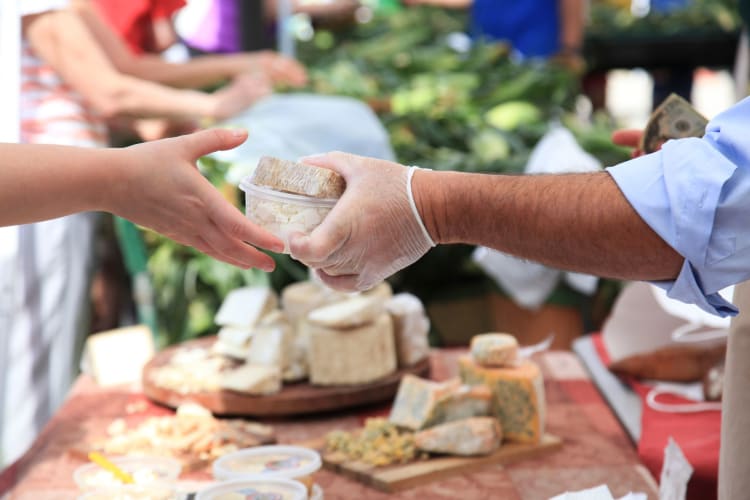
How to Make Labneh
If you would like to try labneh, the absolute best way to do that is to make your own. It’s simple enough for anyone to do at home. Take 1 cup of plain Greek yogurt, add ¼ teaspoon of lemon juice and a pinch of salt. Stir gently to combine.
Place a piece of cheesecloth in a small bowl, add the yogurt mixture and then pull the cheesecloth up and tie it off so that you have a nice little straining packet. Place this in a mesh strainer and sit that back over your bowl. Refrigerate for 12 to 24 hours. The longer you allow it to strain, the thicker the end result will be.
The traditional way to store labneh is to roll it into little balls and submerge it in olive oil before refrigerating. It’s also common to add herbs like oregano or thyme to the mix.
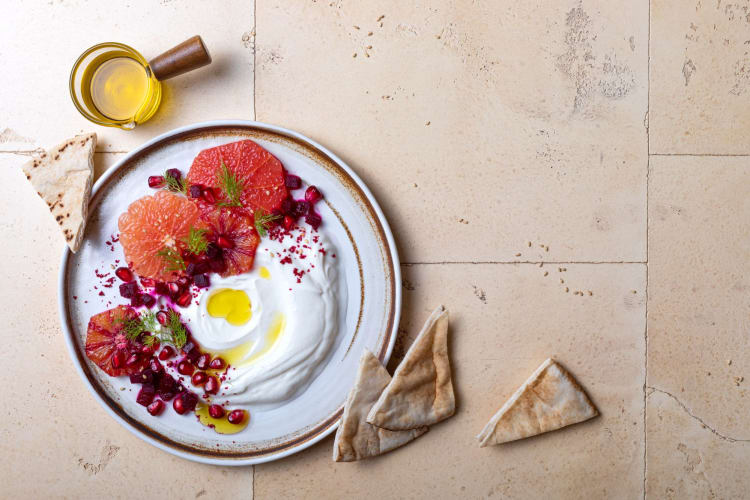
Storing Labneh
Once you have made your own labneh, store it in the refrigerator for up to a week. You can pour olive oil over it to keep it for up to a month (the olive oil prevents the cheese from being exposed to air). Freezing is an option as long as you can find a way to do it without exposure to air. Allow frozen labneh to thaw in the refrigerator for best results.
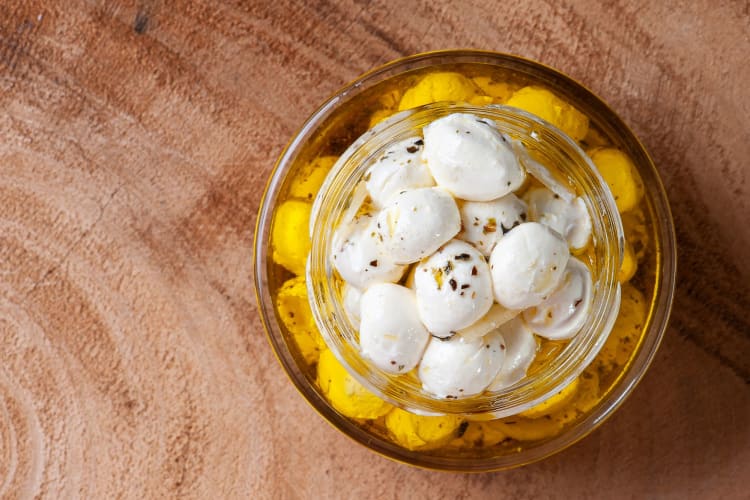
The bottom line on labneh is that if you love cheese, you’re going to love labneh. Everyone knows that too much cheese isn’t good for your diet, so any alternative that gives us our cheesy fix but doesn’t tip the scales is a good thing. That said, labneh brings a fresher, more exciting vibe to the table so think of it more as an all-around condiment than boxing it in as a substitute for cream cheese. From spreads to dips to appetizers to desserts, there’s nothing more to say than hooray for labneh.
For even more ways to explore your favorite foods, check out other experiences happening on Cozymeal.
